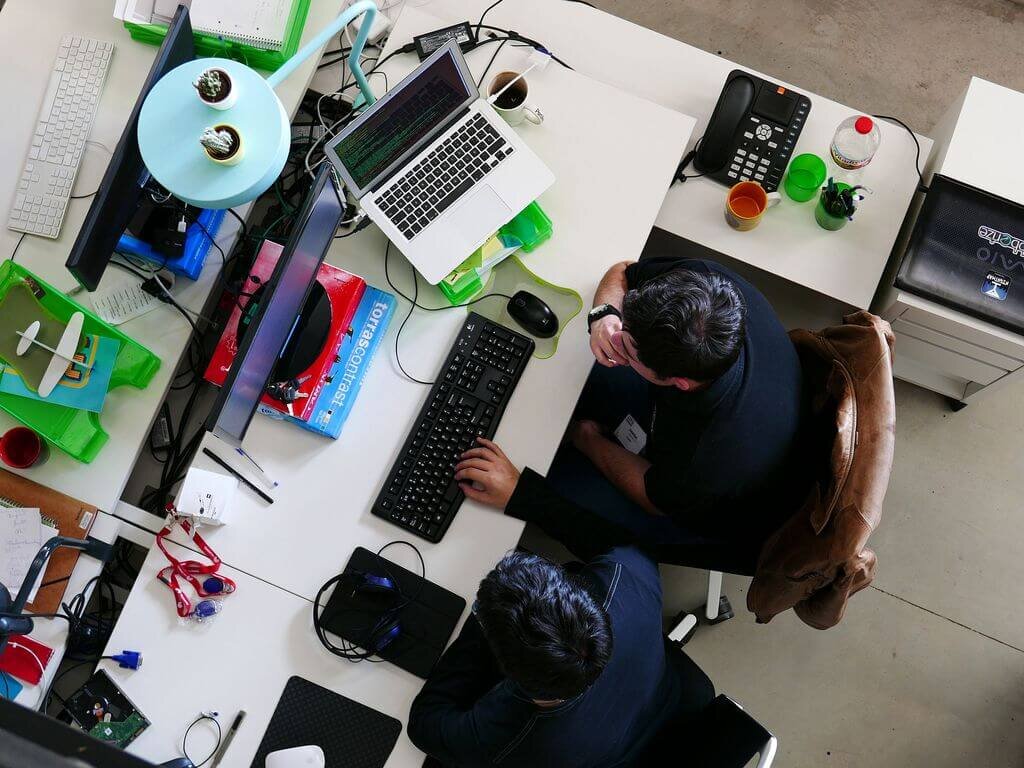Tecmilenio once again takes the lead in educational innovation by launching the Center for the Development of Competencies (CDC).
Pursuing a university degree has become less important for students, who now have re-engaged themselves as lifelong learners. This is the educational transition that Tecmilenio University pushes. Through its Competency Development Center (CDC) initiated this July, Tecmilenio intends to eliminate truncated education and install definitively stackable modular education. This means that people will no longer limit themselves to pursuing a university degree as a single educational goal but will also avail themselves of shorter options that validate their studies.
Tecmilenio’s educational transition
The CDC offerings are open to all people from 12 to 100 years old. They provide a wide range of distance courses from languages to mechatronics and include even human development and science of happiness courses. Paola Galván, Director of Communication, Content and Public Relations for Tecmilenio, commented in an interview for Tec Review that a learner is one who, regardless of age or context in life, can always continue learning. “Even graduates can continue learning; they have just finished attaining their degrees but want to continue studying,” she added.
Galván points out that today it is not only a question of determining what companies expect from graduate students but also asking them what skills they want their workforce to possess. “All of this goes hand in hand with our CIMA 2025 Plan, in which we want to co-create programs with companies so that their employees acquire specific skills.”
CIMA is an acronym (in Spanish) for four educational developments:
C – Co-creation with companies: To ensure that students’ educational training aligns with what is required in the labor market.
I – Integration into digital platforms: To connect students with resources such as certificate programs, micro-credentials, and physical and hybrid spaces.
M – Modular, stackable, flexible, and accessible learning: To personalize students’ learning paths in flexible modules so that they can study at their own pace.
A – Personalized and scalable accompaniment: To aim for integral well-being through a network of mentors and the support of artificial intelligence systems.
Doors open to university and non-university students
With this plan, Tecmilenio once again rings the bell in educational innovation through the launch of the CDC. To learn more about it, Tec Review interviewed the two principal leaders of this revolutionary project. The first of these is Juan Arenas, Vice-Rector for Open Education, Tecmilenio, who declares that the new academic conditions caused by the pandemic have accelerated the educational system of micro-credentials, credentials, and certificates. “If the learner earns three micro-credentials, he or she could achieve one credential; if they gain three credentials, they could obtain a certificate. In each phase, their achievement is recognized with a digital insignia in blockchain,” specifies this executive.
A micro-credential, a credential, and a certificate are equivalent, respectively, to two weeks, two months, and six months of study. The costs range from 1000 pesos for a micro-credential to 14 thousand pesos for a certificate. “The plans for the near future are that if the learner acquires four, five, or six certificates (depending on the academic program), he or she could obtain a university degree,” affirms Arenas.
The CDC’s horizon encompasses 40,000 learners nationally from July 21, 2021, to June 30, 2022. “Our goal, after that, is to impact half a million people through the CDC not only in Mexico but also in Latin America,” Arenas adds. It is crucial to comment that, according to studies compiled by Tecmilenio, 77% of people in the next five years will need to scale up their skills. Also, 50% of organizations want their employees to be immersed in training programs.
In this context, the second leader of the CDC, Julio Peña, Vice-Rector for Business at Tecmilenio, states that a primary goal is to connect with the 300 most influential companies in the country to co-create special programs for their employees. “We also want to deliver solutions that have two important components: a high return on investment in education and the development not only of hard skills but those focused on well-being and self-actualization.”
Tecmilenio has already demonstrated its ability to design “tailored suits” to perfect companies’ talent along these lines. As an example, Peña points to recent work with OXXO stores, stating, “Through collaboration, we managed to design very successful programs for OXXO, in which we have trained more than 4,000 employees with two programs: ‘Transforming Leaders’ and ‘Transformational Leaders.'”
According to this Vice-Rector, these programs are about leadership training, well-being, and happiness, which have positively impacted the convenience store’s main operating and strategic metrics. “We were able to improve turnover and engagement indicators and also increase store revenues.”
Similarly, Tecmilenio has developed specific positive leadership programs with BBVA, resulting in certificate courses to improve employee performance. Finally, Peña emphasizes his dedication to help companies become the gateway for many lifelong learners who genuinely experience an environment of continuous learning. “And that they are challenging themselves all the time to achieve not only professional development but also personal development,” he concludes.
Article published in Tec Review on July 19, 2021.
Translation by Daniel Wetta.
This article from Observatory of the Institute for the Future of Education may be shared under the terms of the license CC BY-NC-SA 4.0 
)
)

)